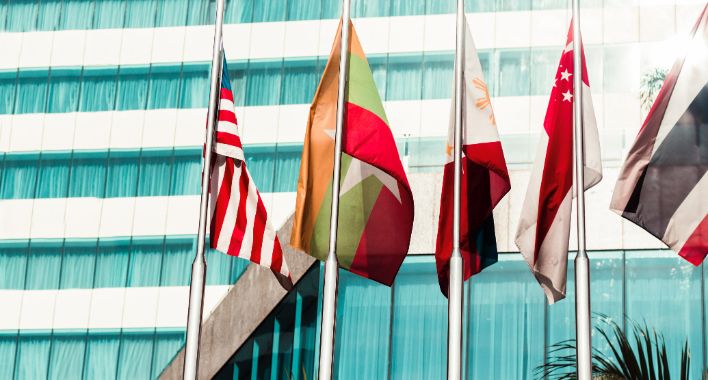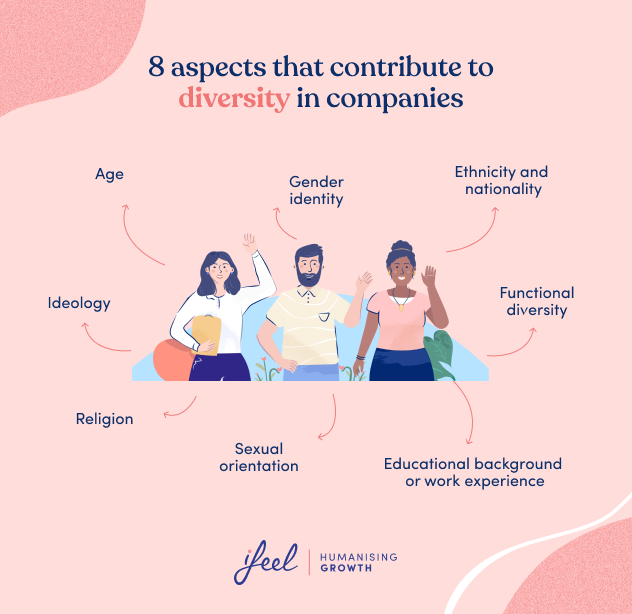The importance of human resources departments in international companies is undeniable. These departments play a crucial role in managing human talent, which is fundamental to an organisation’s success in the global arena.
By aligning HR strategies with international standards and practices, these departments help build a cohesive and culturally competent workforce, driving the organisation’s ability to innovate, adapt, and maintain a competitive edge in the ever-evolving global marketplace.
The role of Human Resources departments in international companies
Firstly, human resources departments in international companies are responsible for talent management and personnel acquisition. In a global context, this involves identifying and recruiting talented professionals in different countries, taking into account labor regulations and the specific needs of each market.
Proper recruitment and talent management contribute to building competent and diverse teams, which is critical to a company’s success in global markets.

1. People development
Human resources departments in international companies play a vital role in the development and management of personnel. The main responsibilities of this department in large companies, and the benefits associated with this process, are explained below:
| Responsibility | Benefits |
|---|---|
| Design of training programs | Improvement of skills and competencies |
| Identification of training needs | Alignment of skills with company objectives |
| Implementation of promotion programs | Encouragement of motivation and staff retention |
| Provision of growth opportunities | Development of leaders and increased competitiveness |
2. Diversity management in the organisation
Managing diversity and inclusion is another key issue in international companies, and human resources departments play a crucial role in this area. Promoting an inclusive organisational culture that values and respects cultural, ethnic, and gender differences is essential for success in multinational environments. Effective diversity and inclusion management fosters innovation, creativity, and collaboration among multicultural teams.
Not sure how to implement this step? With ifeel’s free guide, created by our team of occupational health psychologists, discover the essential steps for integrating a Diversity, Equity, Inclusion, and Belonging (DEIB) strategy into your company’s culture. Learn to enhance inclusivity, foster a sense of belonging, and strengthen organisational leadership. The guide offers practical exercises and actionable insights to drive meaningful change, ensuring everyone feels valued and heard.

Handling different regulatory frameworks
Compensation and benefits management is also a significant challenge for human resources departments in international companies. HR departments must deal with different labor laws and regulations and variations in compensation and benefits standards in each country.
It is their responsibility to ensure that compensation policies are fair and competitive, taking into account differences in local living costs and practices. Proper compensation and benefits administration maintains employee satisfaction and attracts talent in a highly competitive global environment.
Conflict resolution
In addition, human resources departments play a key role in performance management and conflict resolution in international companies. They are responsible for establishing effective performance review systems, providing constructive feedback, managing work problems, and facilitating conflict resolution in multicultural environments. Proper performance management and conflict resolution contribute to maintaining a positive and productive work environment, promoting harmony within the organisation.

Trust the European leaders in mental well-being
In conclusion, human resources departments in international companies play a vital role in talent management, staff development, advocacy for diversity and inclusion, compensation and benefits administration, and performance management.
Overcoming the challenges of global expansion requires strategic planning, cross-cultural competencies, and adaptability on the part of these departments. By working closely with other areas and stakeholders, HR departments can ensure that their practices support the company’s global expansion goals while respecting local regulations and cultural differences.
To assist in this process, our team of psychologists specialising in mental well-being has developed a mental well-being program for companies aimed at helping companies enhance employee engagement and boost productivity.
This collaboration allows HR managers to receive personalised, data-based advice on the most effective measures for detecting employee mental health issues and assessing the workplace climate. It’s the best way to understand their needs.
Moreover, ifeel’s corporate mental well-being solution offers employees a structured mental health care service tailored to their needs at any given time.
We hope you found this article on human resources departments in international companies interesting. If you want more information about our mental well-being solution for companies, simply request it, and we will contact your team soon.
What is the role of talent management in human resources in international companies?
Human resources departments are responsible for identifying, attracting, and hiring talented professionals worldwide. They also focus on developing talent retention and growth strategies to drive success in global markets.
How can human resources departments promote diversity and inclusion in multinational environments?
Human resources departments can promote diversity and inclusion by creating an inclusive organisational culture that values and respects cultural, ethnic, and gender differences. Additionally, they can implement policies and programs that foster effective collaboration in multinational teams.
What are the most common challenges that human resources departments face in global expansion?
Some common challenges include managing cultural diversity, complying with local labor regulations, hiring and retaining talent in new markets, adapting training programs to different contexts, and determining equitable compensation and benefits policies.
How can human resources departments in international companies ensure consistency?
Human resources departments can establish a common framework for human resources processes that work across countries while allowing for local adjustments as necessary. This involves developing policies and procedures that are adaptable to different contexts and ensuring effective communication throughout the organisation.
What is the importance of having an adequate human resources management system for global operations?
An adequate human resources management system in international companies can facilitate business growth planning in different countries, generate global reports on employee data, adapt to global and local processes, and provide multilingual and multicultural support. This helps ensure efficiency and consistency in human resources practices at an international level.







